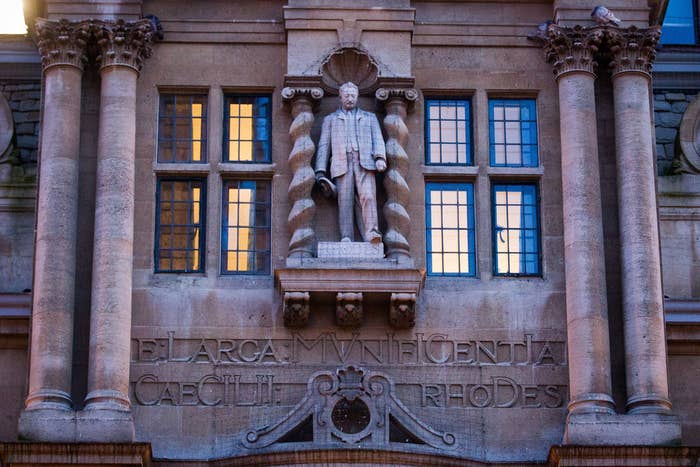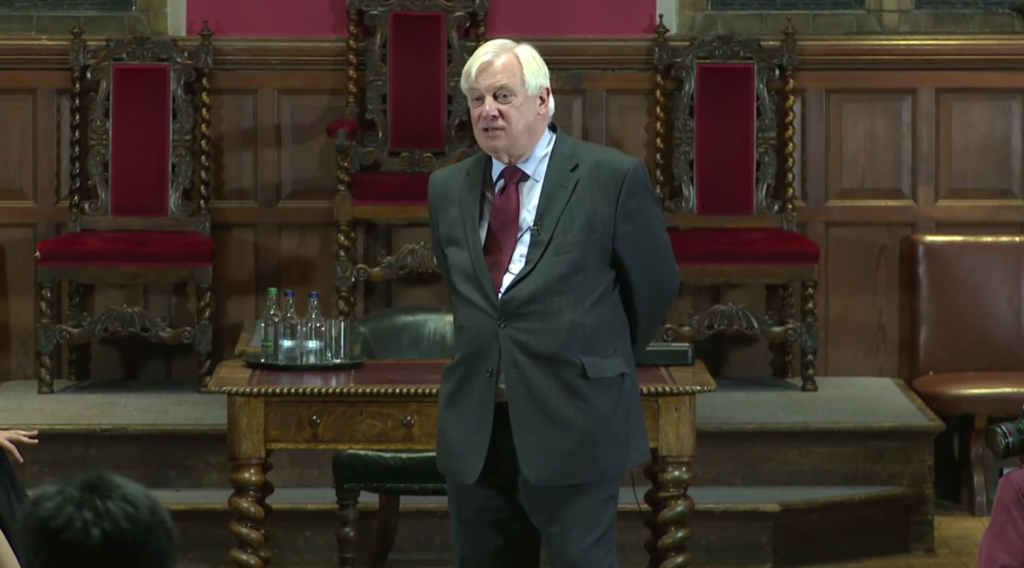The Oxford University college at the centre of protests over a statue of Cecil Rhodes has ruled out taking it down.

In a statement released on Thursday evening, Oriel College confirmed that the statue of Cecil Rhodes – a key figure in the history of the British Empire – would not be removed, despite protests from students who believe the monument represents the university's "imperial blind spot".
"Following careful consideration, the college's governing body has decided that the statue should remain in place, and that the college will seek to provide a clear historical context to explain why it is there," it said.
"The College believes the recent debate has underlined that the continuing presence of these historical artefacts is an important reminder of the complexity of history and of the legacies of colonialism still felt today. By adding context, we can help draw attention to this history, do justice to the complexity of the debate, and be true to our educational mission."
The statement said the campaign "highlighted other challenges in relation to the experience and representation of black and minority ethnic students and staff at Oxford" and that the college was "taking substantive steps to address them".
While the college is yet to outline specific reasons that led to the decision, it says it received statements and evidence by more than 500 alumni, staff, and students, most of whom allegedly claimed they wanted to see the statue standing.
According to The Telegraph, one former alum had threatened to remove £100 million of funding to the college if the statue was taken down.
Last year, students at the university formed the Rhodes Must Fall Oxford group to protest against the statue. Campaigners said that they wanted to start a "critical conversation at the university about the institution's implication in colonialism and the violence that accompanied it" and to highlight the lack of black and minority ethnic voices on campus.
The protests were inspired by student protest groups at the University of Cape Town, an institution built on land donated by Rhodes in 1902.
In April last year, student protesters in Cape Town successfully campaigned for the statue's removal, after months of marches, speeches, and desecration of the statue.
The decision has been met with disappointment and anger from people who supported the campaign.
I woke up with the radio telling me the Cecil Rhodes statue was to remain at Oxford because millionaires protested. I just. Ugh.
Oxford are keeping a statue of a white supremacist & imperialist because some millionaires protested: https://t.co/ZsDTcbw3wR
Racist taint threatens to take ball and go home unless statue of dead racist taint remains. https://t.co/NCFWULJesy
Earlier this month, Oxford University's chancellor, Lord Patten, criticised the protesters, suggesting they were trying to "shut down free speech".

Speaking about the protests on BBC Radio 4, Patten said: "People have to face up to facts in history they don't like and talk about them and debate them."
Oriel College's decision comes following a debate on the statue held at the Oxford Union earlier this month in which students voted to remove the statue by 245 to 212.
Additionally, in December, Oxford students successfully petitioned the college to remove a commemorative plaque of Rhodes displayed inside the college, while students at University College demanded a name change for the Rhodes computer room.
The Rhodes Must Fall campaign has not issued a formal statement on the college's decision but confirmed it will be holding a press conference on Monday.
